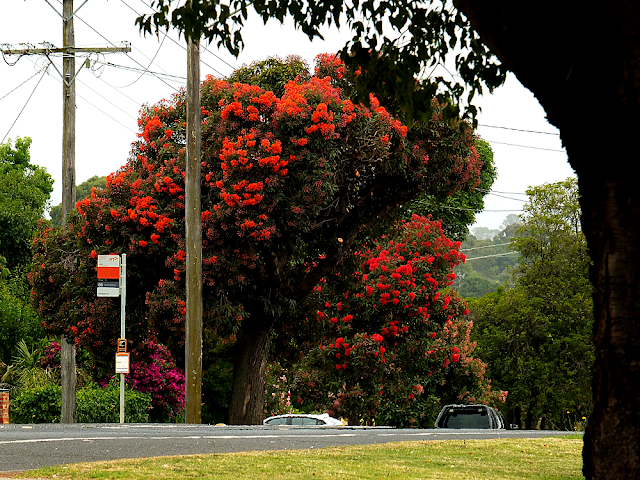The benefits to physical and mental health obtained from
relating with nature are well documented and yet large proportions of urbanised
populations are unable to access green spaces in their daily lives.
For the first time in history, more than half the world’s
population lives in cities. 87% of Australians live in cities. Globally, cities
occupy 2% of the world’s land mass and consume 75% of the world’s resources.
Currently, we in Drouin are fully aware of the effects of urban expansion.
 |
Not much room to plant a native!
|
Just by occupying land, urbanisation can have a detrimental effect on
biodiversity. New developments often require dramatic modification of the
natural environment. As we move into these developments, bringing our cars,
pets and exotic plants, we are negatively impacting on biodiversity.
 |
Corymbia ficifolia – Not just a symbol of our town,
perhaps the last chance for some nectarivores.
|
Many researchers now believe that by concentrating human
populations into urban areas there is an opportunity to preserve biodiversity.
People in urban communities often prefer to live in green and leafy areas. Many
native wildlife species are adapting to urban environments. The recent
catastrophic fire events in Queensland and New South Wales have resulted in
vast losses of habitat. The urban environment might be the last chance of
survival for some species.
 |
Southern Brown Bandicoot – just clinging on in West Gippsland, in a few
remaining patches of roadside habitat.
|
Biodiversity is our own life support system. It provides us with
food, clean air and water and it keeps us healthy.
 |
Golden-headed Cisticola - missing from Gum Scrub Creek
wetlands in the October bird surveys. Nearby development?
|
Integrating nature into an urban environment has so many
benefits and surely it isn’t difficult to increase tree canopy, preserve
remnant vegetation, protect wetlands, add understorey, encourage native
gardens, etc, it simply requires some wise and careful planning.
No comments:
Post a Comment